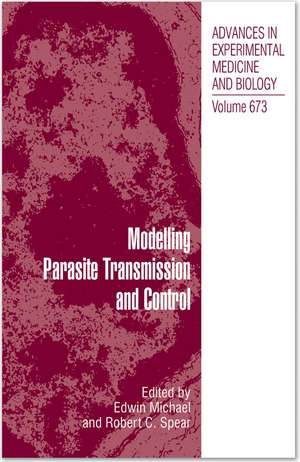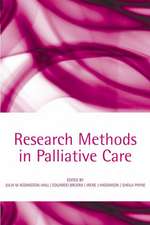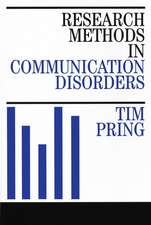Modelling Parasite Transmission and Control: Advances in Experimental Medicine and Biology, cartea 673
Editat de Edwin Michael, Robert C. Spearen Limba Engleză Paperback – 27 mai 2012
| Toate formatele și edițiile | Preț | Express |
|---|---|---|
| Paperback (1) | 1092.99 lei 6-8 săpt. | |
| Springer – 27 mai 2012 | 1092.99 lei 6-8 săpt. | |
| Hardback (1) | 1099.35 lei 3-5 săpt. | |
| Springer – 16 apr 2010 | 1099.35 lei 3-5 săpt. |
Din seria Advances in Experimental Medicine and Biology
- 9%
 Preț: 719.56 lei
Preț: 719.56 lei - 5%
 Preț: 717.00 lei
Preț: 717.00 lei - 5%
 Preț: 717.00 lei
Preț: 717.00 lei - 15%
 Preț: 640.24 lei
Preț: 640.24 lei - 5%
 Preț: 715.71 lei
Preț: 715.71 lei - 5%
 Preț: 716.28 lei
Preț: 716.28 lei - 20%
 Preț: 691.93 lei
Preț: 691.93 lei - 5%
 Preț: 1031.00 lei
Preț: 1031.00 lei - 5%
 Preț: 820.42 lei
Preț: 820.42 lei - 5%
 Preț: 716.28 lei
Preț: 716.28 lei - 15%
 Preț: 641.38 lei
Preț: 641.38 lei - 5%
 Preț: 717.20 lei
Preț: 717.20 lei - 5%
 Preț: 715.35 lei
Preț: 715.35 lei - 5%
 Preț: 1113.83 lei
Preț: 1113.83 lei - 20%
 Preț: 1161.71 lei
Preț: 1161.71 lei - 5%
 Preț: 1170.51 lei
Preț: 1170.51 lei - 18%
 Preț: 1119.87 lei
Preț: 1119.87 lei - 5%
 Preț: 1288.48 lei
Preț: 1288.48 lei - 5%
 Preț: 1164.67 lei
Preț: 1164.67 lei - 5%
 Preț: 1101.73 lei
Preț: 1101.73 lei - 18%
 Preț: 1123.67 lei
Preț: 1123.67 lei - 5%
 Preț: 1435.64 lei
Preț: 1435.64 lei - 20%
 Preț: 1044.10 lei
Preț: 1044.10 lei - 18%
 Preț: 946.39 lei
Preț: 946.39 lei - 5%
 Preț: 292.57 lei
Preț: 292.57 lei - 18%
 Preț: 957.62 lei
Preț: 957.62 lei - 18%
 Preț: 1235.76 lei
Preț: 1235.76 lei - 5%
 Preț: 1231.55 lei
Preț: 1231.55 lei - 5%
 Preț: 1292.30 lei
Preț: 1292.30 lei - 5%
 Preț: 1102.10 lei
Preț: 1102.10 lei - 18%
 Preț: 1132.81 lei
Preț: 1132.81 lei - 5%
 Preț: 1165.19 lei
Preț: 1165.19 lei - 5%
 Preț: 1418.48 lei
Preț: 1418.48 lei - 5%
 Preț: 1305.63 lei
Preț: 1305.63 lei - 18%
 Preț: 1417.72 lei
Preț: 1417.72 lei - 18%
 Preț: 1412.99 lei
Preț: 1412.99 lei - 24%
 Preț: 806.15 lei
Preț: 806.15 lei - 18%
 Preț: 1243.29 lei
Preț: 1243.29 lei - 5%
 Preț: 1429.44 lei
Preț: 1429.44 lei - 5%
 Preț: 1618.70 lei
Preț: 1618.70 lei - 5%
 Preț: 1305.12 lei
Preț: 1305.12 lei - 18%
 Preț: 1124.92 lei
Preț: 1124.92 lei - 5%
 Preț: 1097.54 lei
Preț: 1097.54 lei - 15%
 Preț: 649.87 lei
Preț: 649.87 lei - 5%
 Preț: 1097.54 lei
Preț: 1097.54 lei - 18%
 Preț: 945.79 lei
Preț: 945.79 lei - 5%
 Preț: 1123.13 lei
Preț: 1123.13 lei - 20%
 Preț: 816.43 lei
Preț: 816.43 lei
Preț: 1092.99 lei
Preț vechi: 1150.52 lei
-5% Nou
Puncte Express: 1639
Preț estimativ în valută:
209.15€ • 218.92$ • 174.07£
209.15€ • 218.92$ • 174.07£
Carte tipărită la comandă
Livrare economică 31 martie-14 aprilie
Preluare comenzi: 021 569.72.76
Specificații
ISBN-13: 9781461425878
ISBN-10: 1461425875
Pagini: 240
Ilustrații: XXIV, 212 p. 60 illus., 4 illus. in color.
Dimensiuni: 155 x 235 x 13 mm
Greutate: 0.39 kg
Ediția:2010
Editura: Springer
Colecția Springer
Seria Advances in Experimental Medicine and Biology
Locul publicării:New York, NY, United States
ISBN-10: 1461425875
Pagini: 240
Ilustrații: XXIV, 212 p. 60 illus., 4 illus. in color.
Dimensiuni: 155 x 235 x 13 mm
Greutate: 0.39 kg
Ediția:2010
Editura: Springer
Colecția Springer
Seria Advances in Experimental Medicine and Biology
Locul publicării:New York, NY, United States
Public țintă
ResearchCuprins
Modelling Parasite Transmission.- Progress in Modelling Malaria Transmission.- Vector Transmission Heterogeneity and the Population Dynamics and Control of Lymphatic Filariasis.- Modelling Multi-Species Parasite Transmission.- Metapopulation Models in Tick-Borne Disease Transmission Modelling.- Modelling Stochastic Transmission Processes in Helminth Infections.- Modelling Environmentally-Mediated Infectious Diseases of Humans: Transmission Dynamics of Schistosomiasis in China.- Applicat ion of Models to Parasite Control.- Parameter Estimation and Site-Specific Calibration of Disease Transmission Models.- Modelling Malaria Population Structure and Its Implications for Control.- Mathematical Modelling of the Epidemiology of Tuberculosis.- Modelling Trachoma for Control Programmes.- Transmission Models and Management of Lymphatic Filariasis Elimination.- Disease Transmission Models for Public Health Decision-Making: Designing Intervention Strategies for Schistosoma japonicum.- Epilogue.- Modelling Climate Change and Malaria Transmission.- Modelling the Transmission of Trypanosoma cruzi: The Need for an Integrated Genetic Epidemiological and Population Genomics Approach.
Notă biografică
EDWIN MICHAEL is currently a Senior Lecturer in infectious disease epidemiology at Imperial College London, UK, with a research focus on modelling the transmission and control of tropical parasitic and infectious diseases. His main interest lies in developing a system dynamics approach to gaining a better understanding of parasite transmission, immunology, genetics and economics, in order to develop integrated mathematical models of pathogen transmission as a tool for aiding the rational design, monitoring and evaluation of large-scale intervention programmes, ranging from vector control, chemotherapy to vaccinations. He has worked extensively in Africa (primarily East Africa), India, Vietnam and Papua New Guinea, particularly over the past decade (in partnership with international (WHO, World Bank) and national institutions), in translating research on disease population biology, spatial dynamics and public health decision-making for developing reliable model-based spatial decision support tools to aid the design, surveillance and evaluation of ecologically resilient and sustainable intervention programmes against parasitic diseases of major public health importance in developing countries. His current interest is in extending this work to developing integrated ecological, economic and social systems approaches for investigating interactions between climate change, ecosystem dynamics and the socio-ecology of disease transmission in vulnerable communities.
ROBERT C. SPEAR is an engineer by training, having received the BS and MS degrees in Engineering Science and Mechanical Engineering, respectively, from the University of California at Berkeley and the PhD degree in Control Engineering from Cambridge University in 1968. After several years in the aerospace industry his interests turned to environmental issues and he returned to Berkeley in 1970 to take up a post-doctoral position in this field in the School of Public Health. He was appointed to a faculty position in 1971 and is now Professor of the Graduate School at Berkeley. His research interests focus on the assessment and quantification of human exposures to toxic and hazardous agents in the environment. His early work concerned the exposure of agricultural workers to pesticides. In more recent years his work has concerned applications of mathematical and statistical techniques in the assessment and control of exposures to both chemical and biological agents. For the past 15 years his work has been increasingly focused on determinants of the prevalence and control of the parasitic disease schistosomiasis in the mountainous regions of Sichuan Province in southwestern China.
ROBERT C. SPEAR is an engineer by training, having received the BS and MS degrees in Engineering Science and Mechanical Engineering, respectively, from the University of California at Berkeley and the PhD degree in Control Engineering from Cambridge University in 1968. After several years in the aerospace industry his interests turned to environmental issues and he returned to Berkeley in 1970 to take up a post-doctoral position in this field in the School of Public Health. He was appointed to a faculty position in 1971 and is now Professor of the Graduate School at Berkeley. His research interests focus on the assessment and quantification of human exposures to toxic and hazardous agents in the environment. His early work concerned the exposure of agricultural workers to pesticides. In more recent years his work has concerned applications of mathematical and statistical techniques in the assessment and control of exposures to both chemical and biological agents. For the past 15 years his work has been increasingly focused on determinants of the prevalence and control of the parasitic disease schistosomiasis in the mountainous regions of Sichuan Province in southwestern China.
Caracteristici
Presents the progress made in terms of both the conceptual and practical advances made in addressing key gaps in parasite transmission modelling, the new understanding these have yielded regarding the transmission and control of these parasites, and the future challenges they portend for population dynamics modelling Captures some of the advances made in recent years and provides indications of ways forward for addressing these questions by shedding light on developments in conceptual frameworks and modelling tools as well as the emergence of new data forms for aiding model construction, testing and analysis Parallel development of robust computationally-intensive statistical methods to allow model testing and parameterization by aiding the fitting of models to complex data










